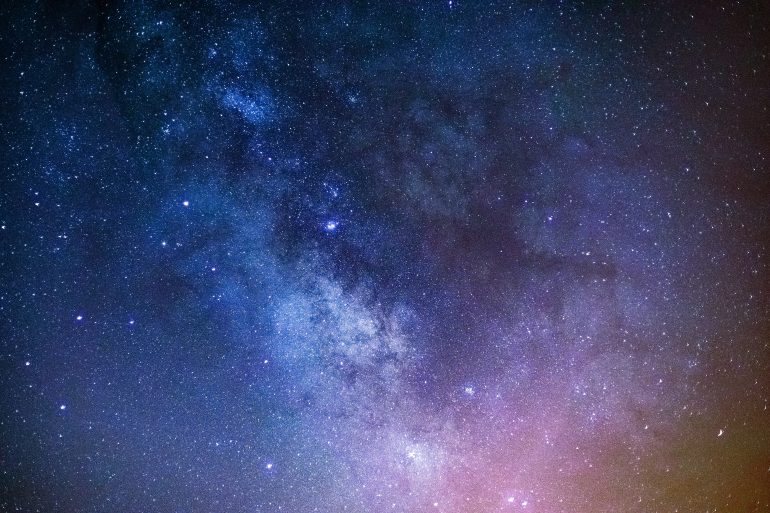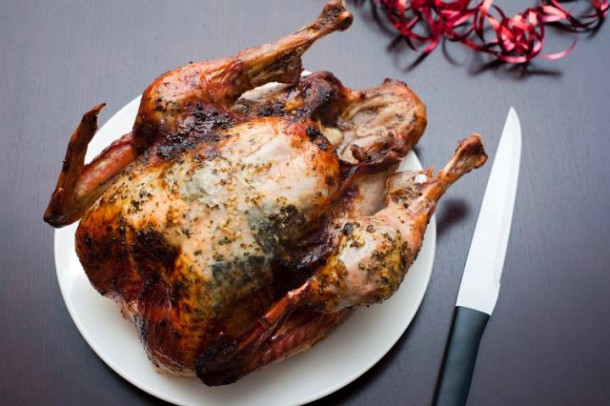Courtney Craggett
Once upon a time, when we were young, my sister and I would swim among the stars, catch the embers on our tongues, pull ourselves through the light like the strongest of Olympians.
She would flip, and I would spin, and the stars around us would expand into eternity. We’d catch them by the reins, paddle alongside them, let their light fill us with fire. It’s something to come face to face with your own immortality.
On earth it was fleeting, glimpsed through puddles on a sunny day, felt in the rustling melody of the leaves before a storm, the chirping of the birds at the feeder, the warmth in each other’s fingertips when we held hands. We laughed when we saw it, jumped into the puddles as if we would fall through, spun in circles beneath the trees and watched the leaves blur into galaxies.
These days the stars are for sale, celestial real estate.
These days the sky above us is more ash than sky, and when we open our mouths we taste soot instead of stardust. My sister and I sit on the front porch in the fall and watch the storms blow in, all wind and lightning and smoke, no rain in months. The hillside by our home sparks and flickers in the storm, waiting for just the right gust. It’s been years since we felt immortality, so long we’ve almost forgotten.
In the mornings we trudge across the street to the public pool to swim in the chlorine, pull ourselves through the water, flip and spin when we reach the end of the lane, push our feet against the slippery side to begin a new lap of breaststroke or butterfly or freestyle. The doctor recommends it for our lungs.
It’s on a morning like this that we hear the smallest squeak, desperate and pleading. Our hair is damp, and the air outside the pool is smokey and thick. The kitten when we find her beneath the bushes is breathing only in gasps, her skin cold and draping. We wrap her in a towel and carry her home. She would die out here.
“What about her mother?” my sister asks, and I gesture to the flickering hillside. The animals are dying, one by one, saying their great goodbye. But maybe we can save this one. At home we fill a sock with warm rice. We mix up corn syrup and water and feed the kitten with a dropper. We take turns staying up with the kitten through the night. All day and night she drinks corn syrup. We tap her chest when she stops breathing and hold our own breaths until hers begins again. Drop after drop, hour after hour, until her gray lips turn pink, and her eyes begin to brighten.
In the morning she drinks milk from a bottle, and three days later she is strong enough to play with a string. “We did that,” I say. “We brought her back to life.” Outside the fires burn, and above the stars blink out, but the kitten’s fur is soft and shiny, and her paws are tiny rosebuds, and her chest vibrates with a happy purr.
All week we play with her, watch her life grow and bloom. She arches her back and pounces on our feet. She nestles under blankets, sleeps curled up by our necks. We forget about the blaze outside. We forget that we are mortal. Last week we found a kitten and she was dying and now she is alive and playing with string.
Then one day she vomits and cannot stop. We pull out the corn syrup again, wrap her in warm towels, hold her and sing to her, but nothing we do is enough. Her breathing stops, and her body grows stiff. She was supposed to have years and years. That’s what we saved her for. She was supposed to be our hope.
We take her outside and dig a hole beneath the irises. In the spring, she will bloom again, if the rain falls. We cry as we pat the dirt. It’s evening, and the stars are beginning to shine hazily behind the smoke.
After the kitten we fling our doors open and welcome anyone seeking refuge in this burning world. It’s all we know to do. Birds search for food, and feral dogs seek warmth, and deer thirst for water. Few survive. We set beds for the animals in our living room, build shelters in the backyard. We line them up in every corner of our home, in shoeboxes or laundry baskets and plastic bins, and we give them what we can until they are strong enough to leave or they die. One after one, we say goodbye to them, one way or another, but we comfort ourselves that for a moment they were here and they were bright and shining and loved. We hope that means something.
One night in early spring, we are mourning a new death by the irises when we feel a cold light on our skin and look up to see the rain falling through the smoke at last, bright as stardust, a slurry of ice and snow and water and soot. The burning hillside smolders, and we walk toward it together, stand in the frozen rain and breathe it all in. We have seen more death than our childhood selves could ever imagine, but above us the stars burn brighter than they have in months and we reach for them, trace the constellations with outstretched fingertips. We remember what we once were. Our feet lift, and our legs kick, and our arms pull. We think of our first small kitten, her lips turning pink and her paws batting at string, her life extended for a brief moment. We are swimming upward, catching the rain on our tongues, sliding our fingers through the starlight. My sister flips, and I spin, and the stars around us expand, and their light fills us with all the fire we need.
What I am trying to say is this: once upon a time there was a girl and her sister and the stars, and they went on and on and on.
Courtney Craggett is the author of the story collection Tornado Season (Black Lawrence Press, 2019). Her short stories appear in The Pinch, Mid-American Review, Baltimore Review, Washington Square Review, CutBank, and Booth, among others. She holds a PhD in creative writing from the University of North Texas and teaches at Weber State University. Follow her on Twitter at @clcraggett.
Photo by Andy Holmes on Unsplash



